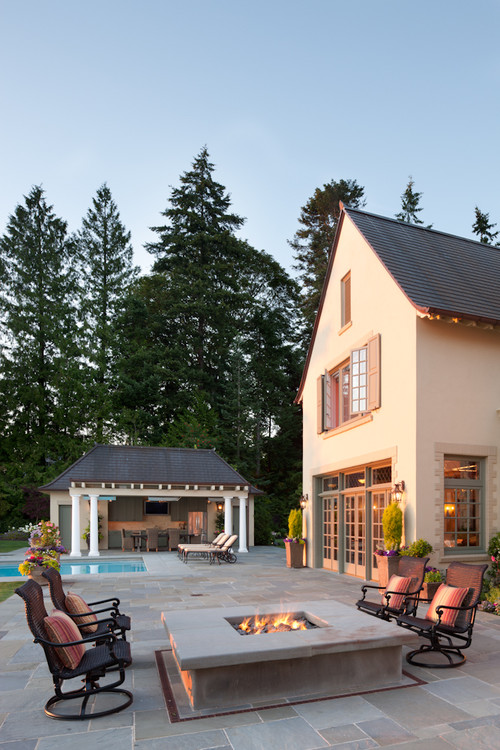Two philosophies prevail when it comes to historic remodels: to make it bold or to make it blend.
Prague’s Dancing House exemplifies a bold, new addition to an old neighborhood. The deconstructionist-style structure stands in stark contrast to the gothic and art nouveau buildings around it. Dancing House certainly makes a statement, but some argue that it’s too much for its setting.

Other projects require a more tender approach to design. Woodway Manor, for instance.
Originally constructed in the 1920s, the European style home needed twenty-first century updates, repairs, and added space. Yet the homeowners desired to respect the manor’s original Woodway architecture. Curt Gelotte and Eric Drivdahl diligently molded the home’s remodels and additions to blend seamlessly with the old. They delved into the home’s rich history–including early contributions from Elizabeth Ayers, Washington State’s first female architect–and allowed that evolving story to inform the project.

Photo by Gelotte Hommas Architecture
The result? A seamless melding of old and new. The poolside entertaining pavilion, the gift wrapping room, and the sports den look as authentic to the historic remodel as the living room and library.
The kitchen features quality amenities while conveying an air of timeless charm with imported Tuscan tile and retrofitted antique fixtures. Outside, verdant landscaping hugs the home and vines climb the walls for a touch of Old World whimsy. The European style home stands naturally in its environment and exemplifies the best of Woodway architecture.

Thus, for the lover of history and traditional style, remodels and additions need not sacrifice character and charm. Diligent design and attention to detail brings out the best in an old European style home even while adding a harmonious modern twist.